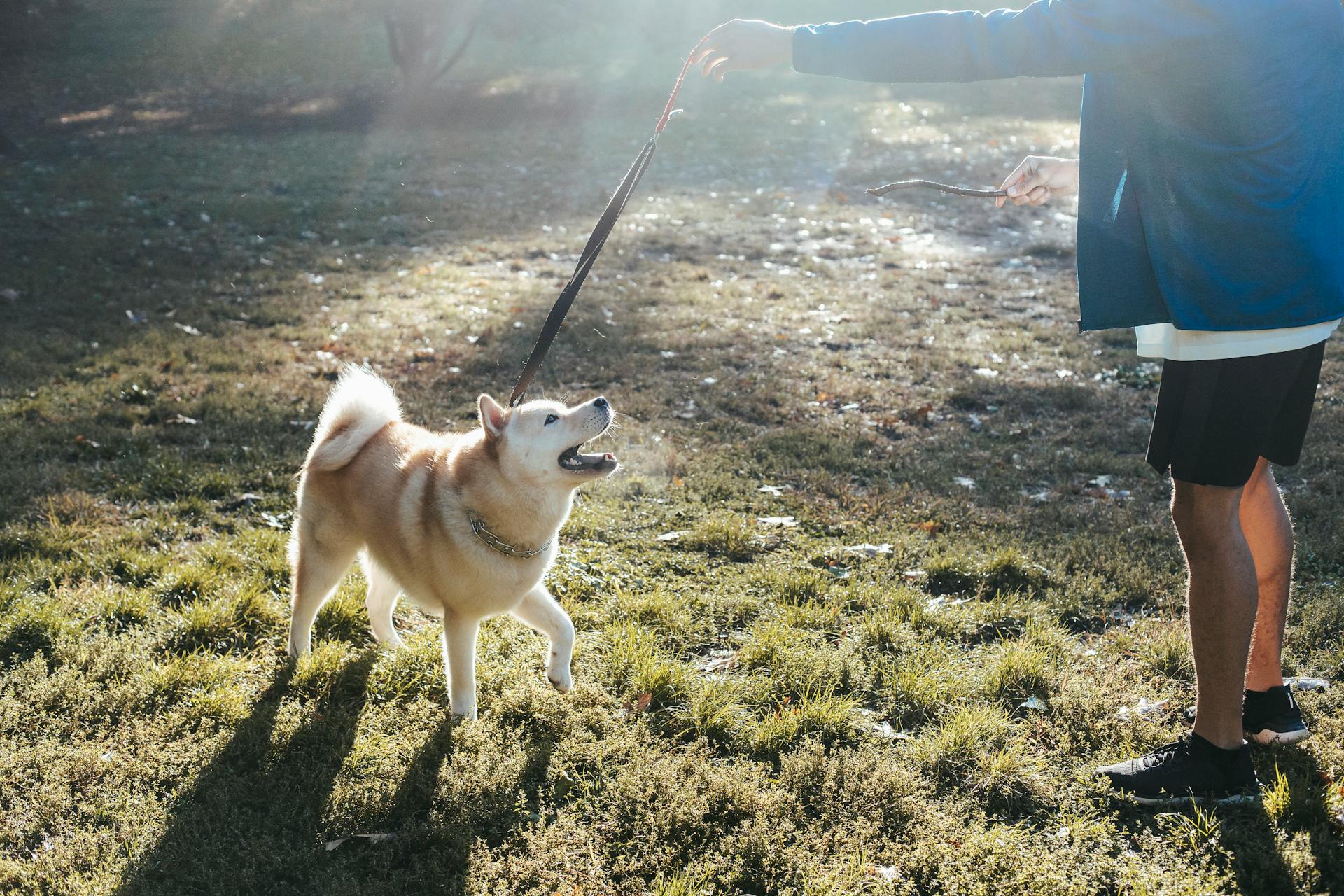
To travel with your dog across state lines, you'll need an interstate health certificate. This document verifies your dog's health status and is required by most states.
The interstate health certificate is typically issued by a licensed veterinarian within 10 days of travel.
Before you can get the certificate, your dog must be vaccinated against certain diseases, including rabies.
These vaccinations must be administered at least 30 days prior to travel.
Interstate Health Certificates for Dogs
Interstate health certificates for dogs are essential when moving your furry friend across state lines. A health certificate is a document that certifies your dog has been inspected and meets all federal and state movement regulations.
To obtain a health certificate, you'll need to contact a USDA-accredited veterinarian. They'll examine your dog to verify they appear free from signs of infectious or communicable disease and meet the destination state's entry requirements.
The veterinarian will also need to verify your dog's official identification, vaccinations, treatments, and disease testing. This documentation is crucial, so be sure to provide all necessary records.
In Michigan, certain species like bison, cattle, deer, goats, and sheep require official identification to leave their location. If you're moving one of these animals, make sure to include their official identification numbers on the health certificate.
Pet health certificates are not the same as health certificates for interstate travel. If you're purchasing a dog from a pet shop or large-scale breeding kennel in Michigan, you'll need a pet health certificate, which is valid for 30 days from the date of examination.
For interstate travel, a health certificate is usually required, and it's essential to check with the destination state for their specific requirements. Be prepared to provide your dog's vaccination records, including the rabies certificate, and proof of any other vaccines given.
Your veterinarian will need to record the vaccine information, including manufacturer, type, and date given, on the health certificate. You'll also need to provide your current address and final destination address, which must be physical addresses, not PO boxes.
A health certificate is valid for 30 days, but many airlines require it to be issued within 10 days of travel. Be sure to check with your airline for their specific requirements.
Here are some key requirements to keep in mind:
- USDA-accredited veterinarian must issue the health certificate.
- Health certificate is valid for 30 days.
- Airlines may require a certificate of climate acclimation for cargo travel.
- Destination state requirements must be checked in advance.
Types of Certificates
There are different types of certificates that are essential for interstate animal movement, and the most common one for dogs is the interstate certificate of veterinary inspection (CVI). A CVI is a document that certifies a dog has been inspected and meets federal and state movement regulations.
A CVI can be completed electronically or on a paper form and is valid for 30 days from the examination date. This means you'll need to get your dog inspected and certified within a 30-day window to ensure a smooth trip.
Only a USDA-accredited veterinarian can issue a CVI, so make sure to find one in your area before planning your trip. These veterinarians have the proper category of accreditation for the species they'll be working with.
A veterinarian must also be authorized by each state where they'll perform accredited duties, which is an important consideration when planning your trip. You'll want to make sure your veterinarian is qualified to work in the states you'll be visiting.
The veterinarian will examine your dog to verify they appear free from signs of infectious or communicable disease and meet the destination state's entry requirements. This includes verifying official identification, vaccinations, treatments, and disease testing.
Here are the species that require official identification to leave Michigan, which should be documented on the CVI:
- Bison and Cattle
- Deer
- Goats
- Sheep
Note that these requirements may vary depending on the destination state, so be sure to contact them in advance for their specific requirements.
Frequently Asked Questions
How long is CVIS good for?
A CVI is valid for 30 calendar days, unless a shorter timeframe is required to prevent disease risk.
Sources
- https://www.michigan.gov/mdard/animals/vet-resources/health-certificates
- https://www.ksvhc.org/services/pet-health-center/travel.html
- https://tequestaveterinaryclinic.com/services/pet-health-certificates/
- https://www.dogjaunt.com/2013/04/u-s-airlines-requirements-for-health-certificates/
- https://sachsevet.com/small-animal-interstate-travel/
Featured Images: pexels.com


